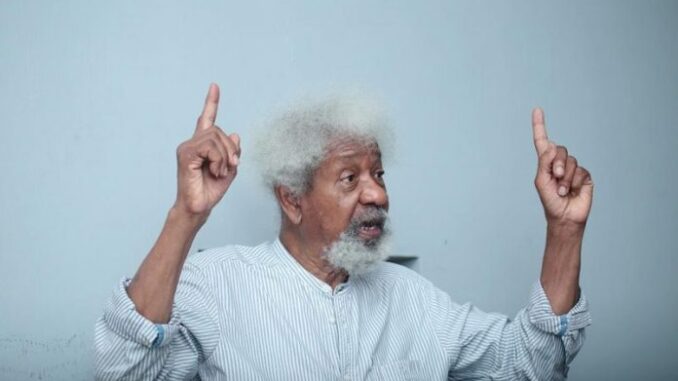
NOBEL laureate Wole Soyinka’s advocacy on the urgent need to decentralise the country speaks poignantly and forcefully to the steps the political leadership must take if they are committed to Nigeria’s survival and future. Delivering a public lecture in celebration of the 50th anniversary of PUNCH Nigeria Limited, last Thursday in Lagos, the playwright spelt out in clear terms why the political class can no longer delay this important existential decision. He is right.
Among other things, Soyinka said previous national conferences to address Nigeria’s challenges were deceitful, reasoning that the exercises were merely held to pacify aggrieved Nigerians. Arguing for decentralisation, he stated, “It’s about time leaders stopped taking this nation for a ride. You know we must decentralise. Security has become a bugbear, from all corners of the nation, that has been the cry.”
Ahead of his swearing-in in April 2023, Soyinka counselled President Bola Tinubu to restructure Nigeria or fail in his economic and social undertakings.
On Thursday, he reiterated, “Decentralise simply so that government can come closer to the people and productivity can really be manifested as a product of citizens, not as manna from heaven. That is the attitude obtained at the moment.
“There is no shortage of reasoned and implementable propositions in past conference papers, including even sham, money-guzzling initiatives, summoned to distract attention from conspiracies for self-perpetuation in power.” These are cogent arguments.
Nigeria is indeed in dire straits and the current social and economic exigencies must not be lost on the political elite who are insulated from the hardship ordinary citizens are going through. The situation calls for purposeful leadership governed and guided by the people’s desire for a country anchored on true federalism, political and economic restructuring, constitutionalism, resource control, fiscal responsibility, and the rule of law.
Granted that restructuring may not be the antidote to all the country’s woes, it is arguably the first step in the march toward national progress and development, equitable and prudent management of resources.
Nigeria is a country with diverse ethnic groups and regions, many of which feel marginalised in terms of resource allocation. Restructuring could allow for more control and management of resources by individual states, potentially leading to more equitable distribution and development. It could also promote fiscal responsibility and accountability at the state level and engender positive competition.
Without decentralisation, economic malaise and insecurity will probably not reduce. Although they shared N6.57 trillion from the centre in 2023, only seven out of 36 states are economically viable without federally-shared revenue, Economic Confidential said.
Decentralising the political structure could enhance democratic participation by bringing decision-making closer to the people. With more power devolved to local governments, citizens may feel more engaged in the political process and have a greater stake in shaping their communities’ futures.
The need to decentralise is also palpable in the country’s security challenges. Nigeria’s collective folly is seen in its single police structure. Not only does this run against the tenets of federalism, but it is also the only one among the other 24 federal entities in the world with a single police force.
Dubiously, most of the police officers are assigned to VIP guard duties, leaving vast swathes of the country vulnerable to deadly attacks by bandits, terrorists, separatist agitators, kidnappers, Fulani herdsmen and armed robbers. The outcome: Under Muhammadu Buhari (May 2015-May 2023), 63,111 Nigerians died in violence. In President Bola Tinubu’s first seven months, 5,135 lost their lives to violence.
Therefore, Tinubu should double down on his promise to restructure the country. This is more pragmatic than first carrying out successful economic and fiscal reforms, his stated priorities.
END

Be the first to comment